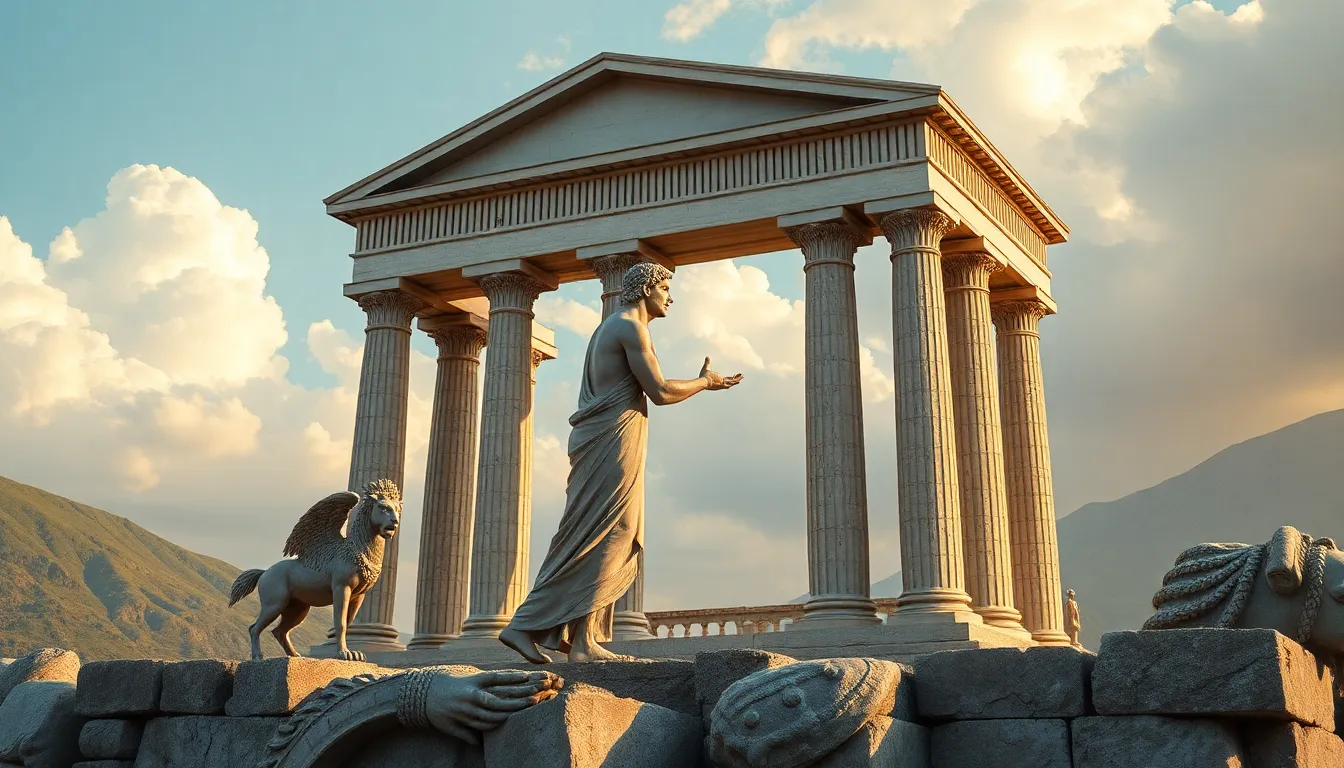The Myth of Love: How Ancient Stories Reflect Modern Relationships
I. Introduction
Love has been a central theme in human experience, capturing the imagination of poets, artists, and storytellers throughout history. In ancient mythology, love is often portrayed as a powerful, transformative force that shapes destinies and influences the gods themselves. From the passionate tales of Greek gods to the profound romances in Indian epics, these myths reflect the complexities and nuances of love that remain relevant today.
This article aims to explore how ancient love stories resonate with contemporary relationships, highlighting the archetypes, complexities, and lessons that can be drawn from these time-honored narratives.
II. The Archetype of Love in Ancient Myths
Across various cultures, love myths share common themes and archetypes that reveal the universal nature of love. Some key love stories include:
- Orpheus and Eurydice (Greek mythology): A tale of love that transcends death, where Orpheus ventures into the Underworld to retrieve his beloved Eurydice, only to lose her again.
- Psyche and Eros (Greek mythology): This story illustrates the trials of love and the journey towards trust and understanding between Psyche, a mortal woman, and Eros, the god of love.
- Romeo and Juliet (Shakespearean influence from earlier myths): Though not ancient in the strictest sense, their love story echoes themes of passion and tragic fate, reminiscent of earlier mythological tales.
- Shiva and Parvati (Indian mythology): This duo represents enduring love, with Parvati’s devotion and Shiva’s transformative nature exemplifying the balance of passion and serenity.
Common themes in these stories include:
- Passion: The overwhelming emotions that can lead to both joy and destruction.
- Sacrifice: Characters often face difficult choices that require personal sacrifice for the sake of love.
- Betrayal: Love can give rise to jealousy and betrayal, resulting in tragic consequences.
III. Love and Its Complexities
Ancient narratives often portray love as a double-edged sword, capable of bringing both bliss and despair. The story of Orpheus and Eurydice serves as a poignant example. Orpheus’s love for Eurydice drives him to defy the natural order, but it ultimately leads to heartbreak when he cannot resist looking back at her until they reach the surface, resulting in her permanent loss.
Other examples include:
- Hera and Zeus: Their tumultuous relationship highlights themes of jealousy and power struggles within love.
- Achilles and Patroclus: Their deep bond showcases the intersection of friendship and romantic love, culminating in tragedy and revenge.
These stories remind us that love is often complicated, intertwined with elements of joy, sorrow, triumph, and defeat.
IV. Love Across Cultures: Similarities and Differences
While love stories from different cultures share similarities, they also reflect unique cultural contexts that shape their narratives. For example:
- In Greek mythology, love often involves gods and mortals, highlighting the divine influence on human relationships.
- In Indian mythology, love stories frequently emphasize devotion and duty, illustrating the balance between personal desire and societal expectations.
- In Roman myths, love is sometimes portrayed with a more pragmatic lens, focusing on alliances and power dynamics.
The cultural context significantly shapes the understanding of love, influencing how relationships are perceived, valued, and navigated across different societies.
V. The Role of Fate and Destiny in Love Stories
Fate and destiny play crucial roles in ancient love myths, often guiding characters toward their inevitable outcomes. The belief that love is predestined can resonate with modern relationships, where individuals often speak of finding ‘the one’ or being destined to be together.
Examples include:
- The story of Pyramus and Thisbe: Their tragic love is marked by fate, as misunderstandings lead to their untimely deaths, symbolizing love’s often uncontrollable nature.
- Antigone and Haemon: Their love is entangled with fate and familial duty, leading to a heartbreaking conclusion.
These narratives highlight how the concept of destiny continues to resonate in contemporary discussions about love, relationships, and the idea of fate guiding our choices.
VI. Lessons from Ancient Myths for Modern Relationships
The stories of ancient love provide valuable insights and warnings that can inform contemporary dating and relationships. Key lessons include:
- The importance of communication: Many myths feature misunderstandings that lead to tragic outcomes, emphasizing the need for open dialogue.
- Be mindful of jealousy: Tales of betrayal and jealousy serve as cautionary reminders to nurture trust and respect in relationships.
- Embrace the complexity of love: Understanding that love encompasses a range of emotions can help individuals navigate their own relationships.
By reflecting on these lessons, modern individuals can approach their relationships with greater awareness and intention.
VII. The Evolution of Love: From Myth to Reality
Over time, societal perceptions of love have evolved significantly. In ancient times, love was often intertwined with duty and societal expectations, whereas today, love is frequently viewed through the lens of individual fulfillment and emotional connection.
Moreover, the advent of technology and social media has transformed how love is expressed and experienced:
- Online dating: Platforms have revolutionized how individuals meet and connect, expanding the possibilities of romantic encounters.
- Social media: It plays a significant role in shaping perceptions of love, with curated images and narratives influencing expectations.
- Communication technology: Texting and video calls have altered the dynamics of long-distance relationships, making it easier to maintain connections.
These shifts reflect changes in societal values, illustrating the ongoing evolution of love from ancient mythology to modern reality.
VIII. Conclusion
The enduring relevance of ancient love myths highlights the universal and timeless nature of love. These stories, rich in emotion and complexity, offer insights that can enhance our understanding of modern relationships. By reflecting on the archetypes, complexities, and lessons from these ancient narratives, we can cultivate deeper connections in our own lives.
Ultimately, exploring these myths enriches our view of love today, reminding us that while the context may change, the essence of love remains a fundamental part of the human experience.




